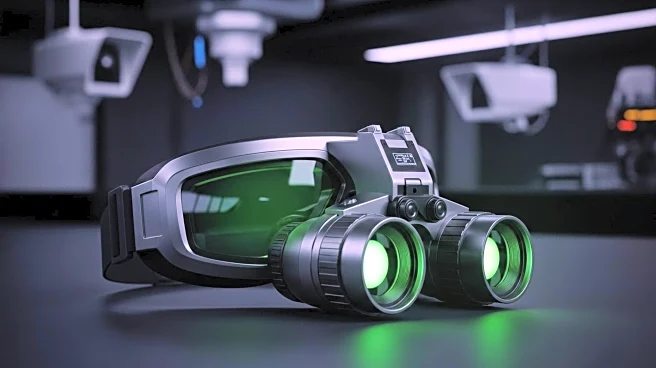What's Happening?
Netflix's animated series Splinter Cell: Deathwatch brings the iconic character Sam Fisher out of retirement for one last mission. The series, directed by Guillaume Dousse and produced by John Wick creator Derek Kolstad, features a mix of action and stealth, diverging from the traditional gameplay of the Splinter Cell video games. The show introduces an older Sam Fisher living a quiet life in Poland, who is drawn back into action when a wounded agent arrives at his doorstep. The series focuses on Fisher's mentorship of new agent Zinnia McKenna, played by Kirby Howell-Baptiste, as they navigate a shadowy conspiracy. Despite the absence of Michael Ironside as Fisher's voice, Liev Schreiber delivers a subdued performance in the role.
Why It's Important?
Splinter Cell: Deathwatch represents a significant adaptation of a beloved video game franchise, offering fans a new way to engage with the story and characters. The series' emphasis on action over stealth may appeal to a broader audience, potentially attracting viewers unfamiliar with the games. However, the departure from the stealth-focused gameplay could disappoint long-time fans seeking a faithful adaptation. The show's success could influence future adaptations of video games into television series, highlighting the challenges of translating interactive experiences into passive viewing formats.
Beyond the Headlines
The series explores themes of loyalty, mentorship, and the consequences of a life dedicated to espionage. It raises questions about the balance between action and narrative depth in adaptations, and the potential for new storytelling opportunities within established franchises. The absence of Michael Ironside's iconic voice may impact the show's reception among fans, emphasizing the importance of casting in maintaining continuity and authenticity in adaptations.










